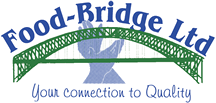Modern Slavery, Human Exploitation and Human Trafficking Policy
During 2022 our business will work with our supply partners internationally as well as in Europe and UK to ensure that our established risk-based supplier management system includes greater visibility into responsible sourcing information. This information is based on processes in place to deal with modern slavery and human trafficking risks throughout our supply chains. This is part of our work to continuously improve our supplier relationships and strengthen our brands standing in ethical compliance. Modern slavery is extremely prevalent across the globe. The ILO estimates that there are 21 million people in forced labour in the world today. It is important that we as a business do not deny or try to ignore the problem. As this is a new journey for us we currently cannot guarantee that all our supply chains are ‘slavery free’. However, we have started in 2022 to take steps to deal with modern slavery risks in our supply chains and our own business. Our initial Steps are outlined below:
1. Awareness
1.1 Sharing awareness on what modern slavery actually looks like in 2022 with Foodbridge GB employees by providing awareness training to be completed by end June 2022.
1.2 Raising awareness throughout our business of what forms Human trafficking can take by making available S2G training videos (https://www.stronger2gether.org) and informing every one of the existence of the UK Modern Slavery Helpline on 0800 0121 700 and in Ireland Migrant Rights Centre Ireland, on 01 889 7570.
2. Responsible Sourcing Programme
Gain a good understanding of our own supply chains by assessing and gathering information about the following parameters:
- the sector(s) and the business our suppliers operate in and whether any of its work is seasonal
- the business organisational structure and group relationships
- the countries sourced from, its goods or services from including high risk countries where modern forms of slavery are prevalent
- the make-up and complexity of the supply chains
- the businesses operating model
Foster long-term relationships with suppliers, contractors and subcontractors. This is achieved through our membership of Sedex.
3. Due Diligence
3.1 We will use sedex as a tool to independently audit and identify compliance in collaboration with our suppliers with a risk based assessed approach.
3.2 we will Incorporate into our supplier management system, a risk assessment supplier information which will include:
- A review of current ethical sourcing management systems, company policies and existing risk management tools
- Research into the challenges faced by suppliers at industry and country level and recommendations on areas for improvement in addressing modern slavery hotspots and risks with suppliers.
4. Commitment to Organisational Policies reflecting our intentions - Procedures and Policies
4.1 The establishment of effective policies and incentives to shape the environment and set the tone of our organisation in assessing, preventing and mitigating the risk of and working to influence and remedy modern slavery in our supply chains and organisation.
Clear organisational policies demonstrate our organisation’s commitment to this issue and ensures that appropriate and coordinated action is taken throughout the business.
4.2 In tackling modern slavery, we are adapting, and/or clarifying how our existing policies and practices, programmes and management systems already work to prevent modern slavery. These policies and approaches will evolve as understanding of the issue and approaches to address it improve.
4.3 Policies supported by the board of directors and senior management that have the right incentives are likely to influence positive behaviour within the organisation and effective communications and, where appropriate, training, resourcing and collaboration of effort by appropriately skilled personnel.
4.4 Clear policies mean that all employees in the organisation and the organisation’s suppliers know how to, and are resourced to prevent or identify exploitation.
4.5 Examine internal business procedures to avoid making demands of suppliers or subcontractors that might lead them to violate human rights, including children’s rights. These types of demands include insufficient or late payments, and late orders or high-pressure deadlines resulting from poor demand forecasting.
5. Monitoring progress
5.1 Carefully designed KPIs will be built to help our business to demonstrate as clearly as possible that we are making progress over time in preventing modern slavery in our business and supply chains.
5.2 Training and awareness building of staff about modern slavery issues
5.3 Grievance procedures and whistle-blowing procedures will be made available for workers and employees if cases are suspected or found
5.4 Modern Slavery status, progress and updates are included as a key topic in the annual Management Review
Websites for reference:
https://www.legislation.gov.uk/ukpga/2015/30/contents
https://www.legislation.gov.uk/ukdsi/2015/9780111138847
https://www.stronger2gether.org
Sedex Advance | Sedex
Publish an annual modern slavery statement - GOV.UK (www.gov.uk)
Transparency in supply chains: a practical guide - GOV.UK (www.gov.uk)


